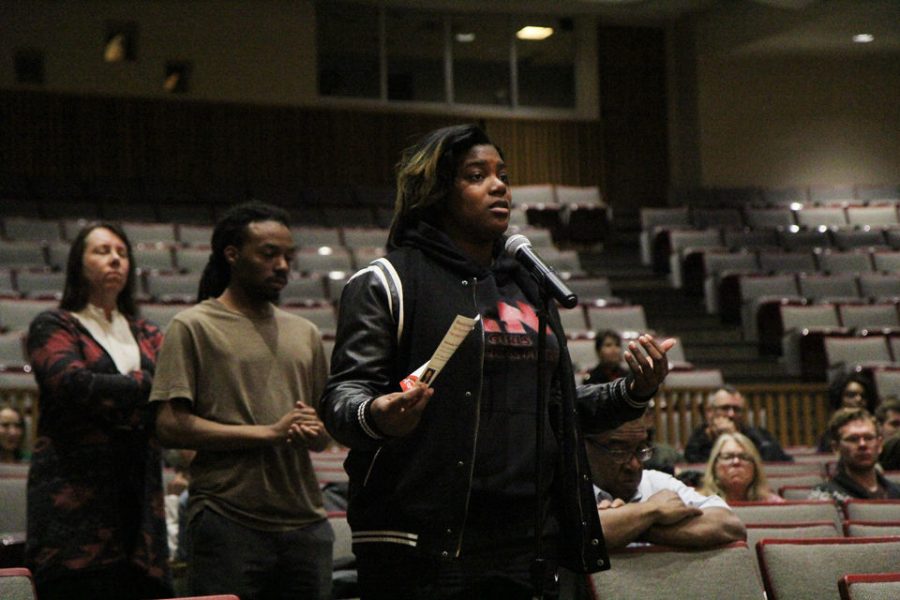Diversity talk sparks free speech, unlawful assembly ordinance conversation
March 24, 2016
“We learn and grow from each other,” said Chief Diversity Officer Vernese Edghill-Walden. “I don’t think the world would be a good place if we all thought the same thing and did the same thing.”
About 100 people attended NIU’s first monthly Diversity Dialogues on free speech on campus and the DeKalb unlawful assembly ordinance draft Wednesday in the Holmes Student Center, Carl Sandburg Auditorium. The DeKalb protest ordinance, first read at the Jan. 11 City Council meeting, stated a 10-person or more assembly can become unlawful if at least one person affiliated with the group violates one of the 21 DeKalb-mandated occurrences including assault and mob action.
Questions concerning the right to assemble and free speech were answered by a panel consisting of Frederick Lawrence, senior research scholar at Yale Law School; Mark Cordes, interim dean of the NIU College of Law; Timothy Brandner, Student Association sergeant at arms and Ariel Owens, SA director of Public Affairs.
The panel discussed how to distinguish the difference between hate speech and expressing an opinion.
“I don’t think these are easy lines to draw,” Lawrence said. “The goal is not to agree on everything… especially on ludicrous issues.”
The Martin Luther King Jr. Commons is the only free speech zone on campus where people have the right to assemble with permission from Student Involvement and Leadership Development and NIU police. The Campus Ministry USA came to the free speech area at NIU in September to discuss their beliefs on the Bible.
Owens said a Campus Ministry USA member abused the free speech zone when that person followed her friend to her car saying “whore.”
Brandner said the policy limiting free speech could be amended, but it may not be a good idea because protestors in an educational environment may be disruptive.
Lawrence said the free speech zone should be expanded because universities restricting where people can use their right to assemble, if peaceful, sounds wrong.
DeKalb Resident Howard Solomon, 67, said the DeKalb unlawful assembly drafts are an example of how restrictions on freedom of speech pose a threat to civil liberties.
DeKalb community members and NIU students expressed their concerns with the ordinance resulting in the DeKalb Human Relation Commission to withdraw their support on the ordinance.
Junior communication major Dominique Green said she needed clarification on how far the First Amendment protects ideas that could be perceived as a threat by the public.
“I’m much more concerned with intent and impact,” Lawrence said. “Your intent is to make a statement about your right to vote… the fact that someone feels bad about that, I think the technical answer is, that’s too bad.”
NIU President Doug Baker said the hiring of NIU’s first chief diversity officer is an example of NIU’s efforts to diversify the campus.
Assistant News Editor Leah Nicolini contributed to this report.














